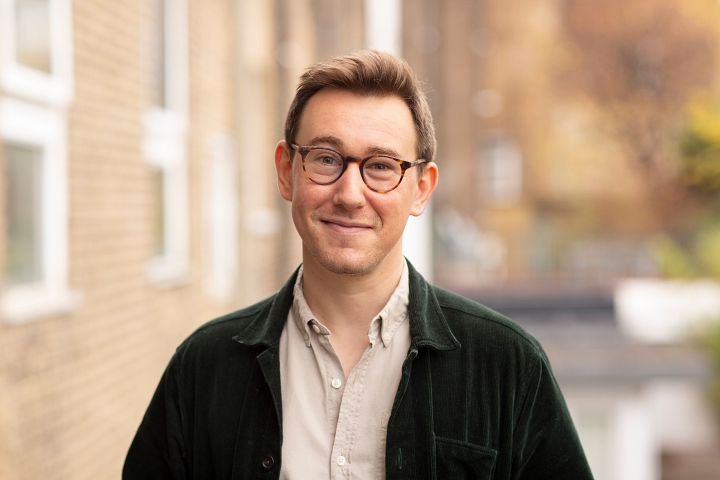Shortlist interview: Tom Crewe
11th June, 2024
In the last of our six shortlist interviews, Tom Crewe answers our questions about The New Life and how he wrote it.
How do you feel about being shortlisted for the Walter Scott Prize for Historical Fiction? Do you consider yourself an historical novelist?
I’m delighted. I don’t consider myself a historical novelist, since the range of subjects and themes provided by the past is so infinite that it quickly becomes a meaningless way of categorising writers. But I do believe, passionately and insistently, in the importance of writing novels about the past, and feel that this is my own special area of dedication. To write only about the present – or to place a higher value on writing about the present – seems to me a terrible limitation on the potential of fiction, and on our knowledge of the human heart. We are doomed to live physically only in our own historical moment – why would we want to confine our imaginations to it as well? Also: the past is far too interesting, far too rich, to be represented only by the novelists who lived then. There is so much they could not do, or did not want to do, or did not think to do. We can fill the gaps.
How did the people and times you write about in this novel first lodge in your imagination?
When I had the idea for this book, I had been studying the 19th century for nearly a decade, from undergraduate through a Masters and then a PhD. In a way, and for a long time, I had been living a parallel, hidden life in the 1880s and 1890s. This meant that when I started writing, I found I could visualise buildings, clothes, streets; I could hear the way that people talked; I knew the way they wrote. The New Lifedidn’t actually draw on any of the work I had done as a historian: I had to start from scratch to uncover the history of Victorian sexuality for myself. But that was helpful too. Part of what I wanted to capture in the novel was my own surprise, my own quickened interest, when I encountered Britain’s first gay rights movement, and saw how it had been eclipsed by the trial of Oscar Wilde.
What place does research have in your writing? When does the fiction take over from the facts?
I did a fair bit of research, over quite a long time (because I had the idea for the book many years before I finally compelled myself to start writing it). I recorded hundreds of page references in my phone, but in the end never typed up my notes. So I absorbed a lot of material but then let it go, and largely relied on memory and imagination working together. I’m sure it’s best to launch off from historical facts in this way, and not to be firmly tied to them.
My book does include some real quotations from historical figures and documents, but they are all altered, changed, embedded in an alternative fictional world. This fitted my general ambition, which was always that I would depart from the historical record. In reality, John Addington Symonds, on whom my character John is loosely based, died in 1893. But I wanted to have a Symonds-like character – a proto gay rights activist, a married man with children, who was becoming more daring and frustrated as he aged – live to see the Oscar Wilde trial in 1895, and therefore dramatise, in a novel, the issues at the heart of a real historical moment. In this way, I think my book serves a good historical purpose. It does not alter the real historical conditions; it simply creates a different personal situation, and then unfolds it. It is a counterfactual, and counterfactuals can be very useful ways for historians to think about the constraints and possibilities of moments in the past.
Can writing about the past help us to deal with the present and think about the future?
Not necessarily to deal with the present, at least not superficially, but certainly to understand the forces and pressures that have created it. This can lead us in the right direction more quickly.
The Walter Scott Prize has a younger sibling, the Young Walter Scott Prize, which is a creative writing prize for young people (11-19 years), who are asked to write a short story set before they were born. If you were asked for one tip to help young writers start writing historical fiction, what would it be?
Don’t give us too much historical detail (sights, sounds, smells) – remember that your characters take their world for granted. You should be telling us how they see things, not pulling on the reader’s sleeve and reminding them what year it is.

